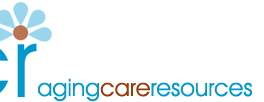|
You must read and agree to the Terms of Use to use this service. |



Resources, Services,
Products & Answers


|
|
You must read and agree to the Terms of Use to use this service. |
 |
 |
 |
Your One Stop For Resources, Services, Products & Answers |

|
||
 |
||||||
| ||||||
|

|

|

|

|
All content is copyright © 2008 by Care Perspectives, Inc. - Privacy Policy - Terms of Use
Website design by Care Perspectives, Inc. |